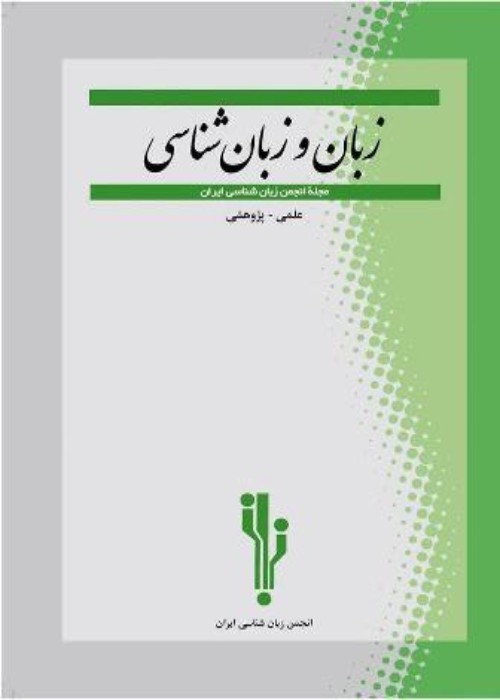A Diachronic Study of " ǰɑ" Adposition in Baboli Variation of Mazandarani Language
Author(s):
Abstract:
In Baboli Variety of Mazandarani language, ǰɑ is a postposition encoding semantic roles of source, cause, comitative, and instrument, and has functionally the same meaning as az and ba in Persian. The aime of this study is to investigate archaic form of ǰɑ and its functions in Old and Middle periods of Iranian languages. Furthermore, it is determined that ǰɑ is derived from Sanskrit sačā and Avestan/Old Persian hača/hačā. Its equivalents in Sogdian, Middle Persian, and Parthian are respectively čan, az, and až. Based on the many instances presented in this article, it is concluded that the archaic forms of this adposition, similarly, encoded semantic roles of source, cause, comitative, and instrument in Old and Middle periods of Iranian languages. ǰɑ has retained these semantic roles in Baboli / Variety of Mazandarani language. The oldest form of ǰɑ in Sanskrit has encoded semantic role of comitative which means that this role is of an older origin.
Keywords:
ablative , instrumental , source , instrument , comitative
Language:
Persian
Published:
Language and Linguistics, Volume:12 Issue: 24, 2017
Pages:
139 to 153
magiran.com/p1686190
دانلود و مطالعه متن این مقاله با یکی از روشهای زیر امکان پذیر است:
اشتراک شخصی
با عضویت و پرداخت آنلاین حق اشتراک یکساله به مبلغ 1,390,000ريال میتوانید 70 عنوان مطلب دانلود کنید!
اشتراک سازمانی
به کتابخانه دانشگاه یا محل کار خود پیشنهاد کنید تا اشتراک سازمانی این پایگاه را برای دسترسی نامحدود همه کاربران به متن مطالب تهیه نمایند!
توجه!
- حق عضویت دریافتی صرف حمایت از نشریات عضو و نگهداری، تکمیل و توسعه مگیران میشود.
- پرداخت حق اشتراک و دانلود مقالات اجازه بازنشر آن در سایر رسانههای چاپی و دیجیتال را به کاربر نمیدهد.
In order to view content subscription is required
Personal subscription
Subscribe magiran.com for 70 € euros via PayPal and download 70 articles during a year.
Organization subscription
Please contact us to subscribe your university or library for unlimited access!



